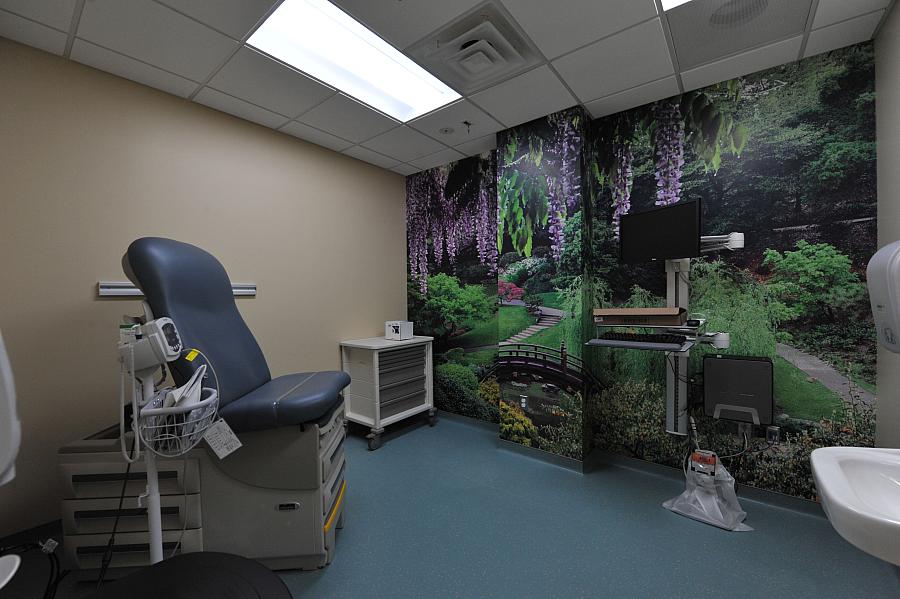Only an Accident: Fatal Colonoscopy Leaves Family Stunned and Unpaid

Duane Middleton died too young.
He was 54 when he died in February 2010. A New Yorker transplanted to Maryland. He left behind a wife, five children and three grandchildren.
We know that much from his obituary in the Gaithersburg Gazette.
The obituary didn’t mention the cause of death, but his death certificate did. It said his death was accidental and that it was caused by acute peritonitis due to perforation of the cecum during a colonoscopy. It also listed hepatitis C, cirrhosis of the liver, hypertension, and chronic renal insufficiency as other significant conditions contributing to his death, indicating that Middleton was not in perfect health at the time of his death.
But what killed him? And does the accidental nature of his death entitle his family to any compensation?
His insurance company and the U.S. District Court of Maryland say “no.” The reasoning behind this no may make perfect sense to attorneys, but it may feel like a trip to “Alice in Wonderland” for patient safety advocates. I first read about the case on a blog by the plaintiffs’ law firm, Belsky, Weinberg & Horowitz, and had to read it twice because it didn’t seem to add up. The story shows how hard it can be for patients and their families to make a case for themselves.
I’ll try to explain what happened as best I can in a series of posts.
Here’s how it started.
Middleton suffered from multiple conditions, as noted on his death certificate, and his liver was in such bad condition that he had been placed on the waiting list for a liver transplant. His family had a history of colon cancer, and in the prep work for the transplant, a physician recommended that he undergo a colonoscopy.
For better or for worse, colonoscopies are among the most common procedures performed in the United States, as Elisabeth Rosenthal explained in The New York Times recently. As with most procedures that involve something being inserted into your body, the procedure came with a warning. But the chances of someone becoming fatally wounded during a colonoscopy are very small.
Should Middleton and his wife, Sherri, have assumed that he might die as a result of the procedure? And should they have decided to forgo the colonoscopy? There’s a much larger question raised by Rosenthal’s New York Times story about whether all of these colonoscopies are necessary, too.
In a study in JAMA Internal Medicine in 2011, Dr. James Goodwin and colleagues found that colonoscopies were overused in Medicare patients. They wrote:
Less attention has been paid to possible overuse of screening colonoscopy. Overuse is important for several reasons. First, screening colonoscopy can have adverse effects, including hospitalization and death. Too frequent performance of the examination may shift the benefit to risk ratio by increasing complications without additional benefit. Second, colonoscopy screening is costly; it is important to restrain expenditures for unnecessary procedures. Third, colonoscopy is a limited resource, in terms of facilities and practitioners. Identifying and decreasing overuse of screening colonoscopy should free up resources to increase appropriate colonoscopy in inadequately screened populations.
Let’s linger for a minute on that first point.
Yes, complications can occur because of colonoscopies. But the study cited by Goodwin clearly shows that they are rare. The 2006 study by Dr. Theodore Levin and colleagues examined records from 16,318 members of the Kaiser Permanente health system who underwent a colonoscopy between January 1994 and July 2002. Out of 16,318 patients they found just 10 deaths within 30 days after the colonoscopy and, of those, they only could attribute one to the procedure.
So, Middleton had every reason to feel that if he underwent the procedure, he certainly wouldn’t die as a result. And he must have believed it was necessary, too. He underwent the procedure. During the colonoscopy, the lining of his colon – known as the cecum – was torn.
He died seven hours later.
Part 2: Insurance company says, Tough luck, accidents happen
Part 3: How judges read the fine print on a medical fatality
Image by Todd Frantom via Flickr

